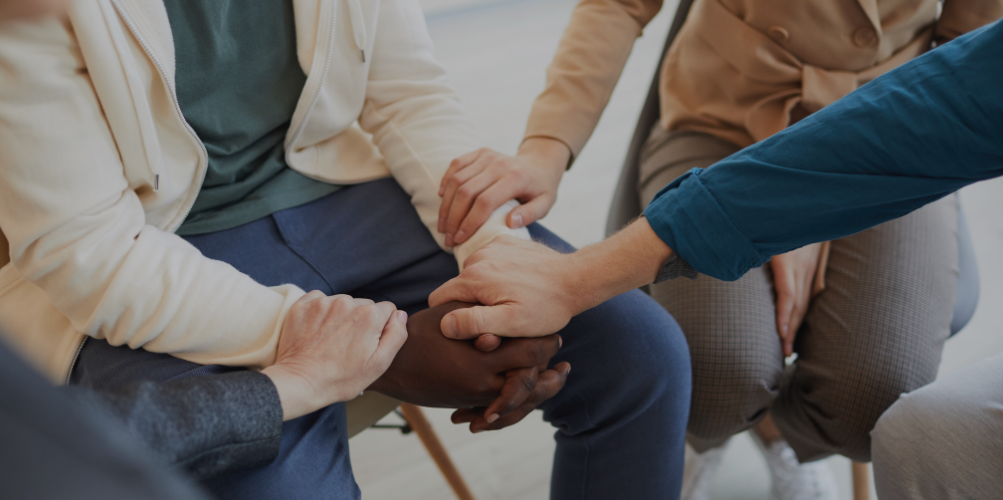By Rick Benson
The holidays can bring a lot of stress, unrealistic expectations, and difficult emotions. Instead of being a time of happiness and togetherness, it can be a time of loneliness and longing for things to be better than how they are. This can be an especially hard time for those who are experiencing gambling addiction, as well as those with a loved one who is addicted to gambling.
You may be feeling unsure of how to get through this holiday season, and how to help your addicted loved one. Here are some ways that you can support a gambling addict during the holidays, while taking care of yourself as well.
Why the Holidays Are the Hardest Time for Gamblers
During the holidays, there is so much pressure to be happy. However, for many, the holidays bring everything except for happiness. Here are a few reasons why the holidays are particularly hard for compulsive gamblers.
Financial Stress
Christmas brings a lot of financial pressure to buy gives for your loved ones. "Christmas is the most distressing and depressing time for people addicted to gambling - there's societal pressure to spend money," says James Grimes, a recovering gambling addict.
%20(5)-1.png?width=908&height=453&name=Blog%20Cover%20(1000%20%C3%97%20500%20px)%20(5)-1.png)
The financial stress of the holidays could be especially heightened this year, with the cost of living crisis, and the Super Bowl (a popular sports betting event) being so close to Christmas.
Triggers Are All Around
While Christmas can be a happy time of year, for some it can heighten feelings of loneliness, depression, and shame.
"When you're losing money gambling at the best of times the shame you feel is awful, and that is heightened at Christmas by the fact you're letting people down because you can't provide,” continues Grimes.
Holiday Sporting Events and Promos
There are many sporting events that take place over the holidays, and sportsbooks often offer special holiday promotions to make betting more appealing.
How to Help a Gambling Addict Over the Holidays
If you are close to someone who is addicted to gambling, there is not much that you can do except support them and love them. Gambling addiction is a complex problem that requires professional help, but here are a few ways you can show your support to your loved one this holiday season.
1. Set Realistic Expectations
Be patient, and don’t expect the holidays to solve all your family problems, or to cure your addicted loved one.
Although the holidays can be a great way to bring people together, it can also bring up a lot of hurt and negative emotions among family members. Don’t expect your loved one to suddenly be very social or happy, to be a past version of themselves.
Don’t use the holidays to force difficult conversations that will only lead to more hurt. Keep in mind that the holidays may not be a joyful time for your loved one, as recovery can be incredibly difficult and uncomfortable.
2. Learn About Gambling Addiction
Try to understand why your loved one gambles, and what it does to their brain. Quitting an addiction is not simply a matter of willpower - it takes a lot of dedicated work and treatment to overcome.
3. Set Boundaries
It can be difficult to know when you are supporting an addicted loved one vs. when you are enabling them. One way you can prevent enabling is by setting healthy boundaries.
This may mean no gambling in the house, not lending them money, and not making excuses for the gambler.
Sooner or later, they need to own up to their own mistakes, and acknowledge how their gambling is affecting those around them. Continually covering up for the gambler will only make things harder in the long-run.
In order for boundaries to be effective, there must be consequences if these boundaries are violated. Be sure to clearly communicate what the boundary is and what the consequences will be if it is broken, and then follow through with the consequences.
4. Help Them Avoid Their Triggers During the Holidays
Seek to understand what your loved one’s gambling triggers are. For some, it might be boredom or isolation. In this case, see if you can include your loved one in your daily activities to help them avoid this trigger.
-1-Mar-07-2024-10-21-38-8915-AM.png?width=1000&height=500&name=blog%20featured%20image%20(9)-1-Mar-07-2024-10-21-38-8915-AM.png)
Other more obvious triggers include sports, or playing competitive games. Refrain from having sports on the TV over the holidays, and instead focus on being present with one another.
5. Be There For Them
Sometimes what a person needs most is simply for someone to care about them, and to be a listening ear when they need to talk.
Don’t shame or blame your loved one for their addiction. Shame is often at the root of an addiction, as it can make people feel worthless, and as though they are a disappointment to others.
When a person experiences these feelings, they become more prone to relapse as a way of coping with their shame.
6. Encourage Them to Seek Support
Try to encourage your loved one to seek professional support and treatment. Having a counselor or a sponsor, or attending a treatment center can make the gambler feel less alone, and more understood.
It’s important to acknowledge that professionals will be able to help your loved one more effectively than you can on your own.
How to Cope With a Loved One's Gambling Addiction Over the Holidays
As much as you want to be there for your loved one, it’s also important to learn effective ways for you to cope with their gambling addiction. Addiction does not only affect the addicted individual, it affects the whole family, and those close to them.
Take Care of Yourself
It’s especially important during this time to practice self-care and make time for yourself to avoid burning out. A few ways to do this include:
- Taking time to relax
- Practicing breathing exercises
- Expressing your emotions through journaling
- Practicing gratitude
- Exercising
- Focusing on positive self-talk
- Making time to have fun and do something you enjoy
Don’t Blame Yourself
Your loved one’s gambling habits are not a result of your shortcomings, and their reluctance to seek treatment isn’t a result of your failed efforts.
Remember, at the end of the day, you can only do so much. An addicted gambler will only truly start recovering when they decide they are ready. As much as you may want to rush the process, don’t force it.
Seek Support
Dealing with a loved one’s addiction is not easy. It can cause a great deal of stress, loneliness, depression, and can feel overwhelming. Know that you are not alone, and that there are many others going through the same thing.

Find support groups in your area or online, where you can talk to like minded individuals. Going to therapy can also be incredibly beneficial, as it can be a space for you to speak openly about what you are going through, and gain clarity on where to go from here.
Remember that there is no shame in admitting that you need help.
Get Help for Gambling Addiction
Whether you need support for yourself or a loved one, Algamus is here for you. We can help advise you on how to best support your loved one, and what the best steps are for getting your loved one into treatment.
Our residential treatment program continues to run throughout the holiday season. For gamblers who are in college or university, this winter break can be the perfect time to attend treatment.
Reach out to our gambling counselors to learn more about our programs and how we can help, or leave a question in the comments below.



